
Monitoring your response to exercise
Monitoring your response to exercise
It is important to monitor your response to your exercise programme by taking your pulse-rate before, during and after exercise. Underworking will show no benefits and overworking may harm you and your baby. The correct pace will allow you to carry on a conversation while exercising (talk test).
Talk test is exactly what it says – the ability to talk during your workout – and can help you determine how hard you are working. If you can converse comfortably during exercise you are working out at an acceptable intensity and are probably in the low-to middle-range of the Perceived Rate of Exertion
Scale (PRE).
Monitoring perceived rate of exertion
The Perceived Rate of Exertion Scale (PRE) is based on a mother’s ability to rate (according to a number scale) her body’s response to exercise. Each number on the scale represents a description of the mother’s perceived rate of exercise intensity.
In a class of 10 pregnant women, the PRE scale may vary from 7–19 depending on age, fitness and stage of pregnancy.
No one knows your body better than you do – you are the best judge of how you are feeling. This form of exercise monitoring can be used in conjunction with pulse taking and the “talk test”.
| How does exercise feel? | Rating |
| Very, very light | 6 / 7 / 8 |
| Very light | 9 / 10 |
| Fairly light | 11 / 12 |
| Somewhat hard | 13 / 14 |
| Hard | 15 / 16 |
| Very hard | 17 / 18 |
| Very, very hard | 19 / 20 |
You should be working at a rate of 13–15 on the PRE scale, at a pace that you would describe as “moderately challenging”.
Resting pulse
Your resting pulse rate, which should be taken before rising in the morning, will increase slightly as your pregnancy advances, and may drop as you become fitter.
Related articles
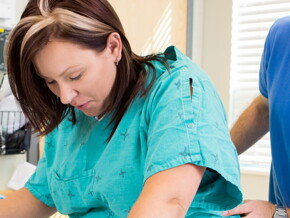
Further comfort measures for pain relief
Distractions like breathing, visualising or fixing on one point can take your mind off the pain.
5 mins to read
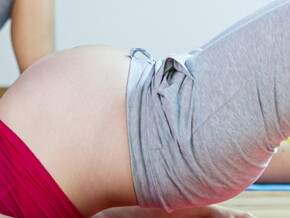
Levels of fitness
First trimester
Your fitness is likely to decrease. Listen to your body and only do what you feel comfortable doing.
Second trimester
5 mins to read
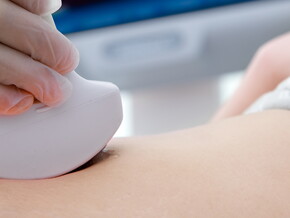
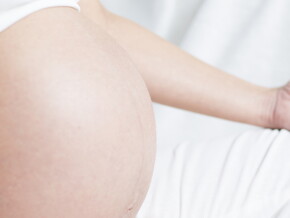

Criteria for prenatal classes
Instructor’s credentials, for example, midwife, physiotherapist.
Instructor’s specialised training in childbirth education.
5 mins to read

Conception
The fertilised egg divides into two identical cells – then four, then eight, then 16, and then many billions, and 266 days later – your baby.
1 min to read

Health and fitness
Ideally, you should assess your health and fitness. You may need to make some changes to your lifestyle
3 mins to read

Foetal wellbeing tests during late pregnancy
Foetal movement counts (after 28 weeks)
Be aware of your baby’s pattern of movements on a daily basis by counting four foetal movements in the hour after a meal every day.
5 mins to read

Iron in Pregnancy
As a mom, whether you have a child yet or not, you look into the lens of the future to envision memorable moment after memorable moment together.
5 mins to read

Nutrition
Your nutritional status at the time of conception and in the crucial early weeks of pregnancy is significant for the successful outcome of the pregnancy.
1 min to read

Why exercise during pregnancy?
Exercise leads to improved circulation, which in turn can reduce the severity of varicosities (varicose veins).
5 mins to read

Exercise during and after pregnancy
“I am pregnant – can I exercise?”
5 mins to read

Exercise
Feeling healthy, stress-free and relaxed will only help the chance of you and your partner falling pregnant.
1 min to read

Types of exercise
Your safety and that of your baby are of prime importance at all times. You may begin to exercise in early pregnancy and continue for as long as you feel comfortable.
5 mins to read

Adjusting to pregnancy
Discovering that you are pregnant brings about a variety of new feelings.
5 mins to read

Hazards to pregnancy
Pregnancy is usually diagnosed several weeks after conception. It is, therefore, advisable to avoid risk factors if you are planning to become pregnant.
2 mins to read

Increasing postural awareness and correction take
Take particular care of your back during and after pregnancy – protect it from strain and possible injury.
5 mins to read

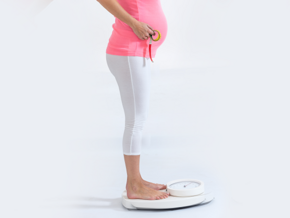
How Much Weight Should I Gain During Pregnancy?
There are many things you can do to prepare for the delivery of a healthy baby. One of the most important things is eating right to gain the extra weight you’ll need to support another life.
4 mins to read